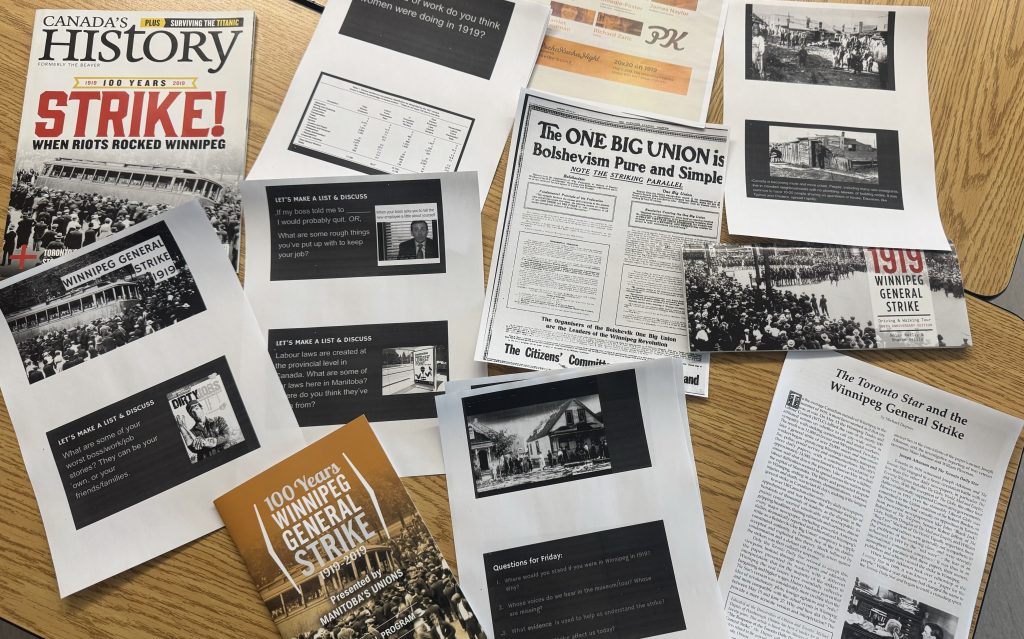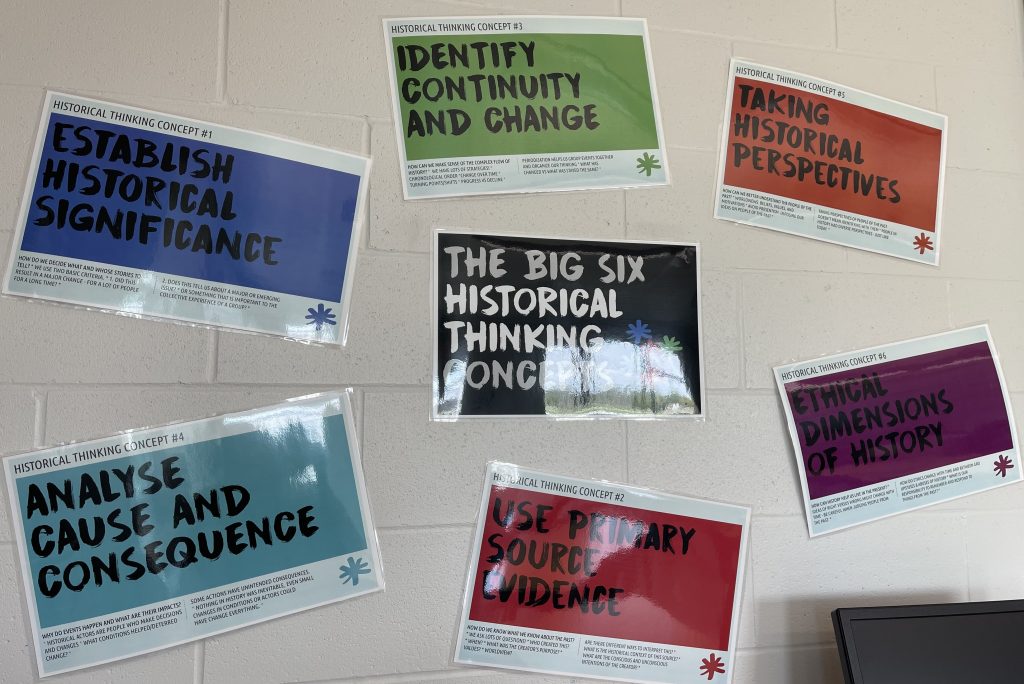Jolene Fiarchuk,
History Teacher
Jolene Fiarchuk teaches history for grades 11 and 12 and has been teaching for 13 years. She has taught at a large, public high school in southeastern Manitoba for the past 10 years. As Jolene explained, teaching in a large high school gives her the opportunity to teach multiple sections of the same courses, including Grade 11 Canadian History and Grade 12 Western Civilization. This allows Jolene to adapt materials and teaching styles to best suit her students’ needs. Students in Jolene’s school travel from a variety of surrounding rural communities to attend her school; as a result, the school is quite socioeconomically and geographically diverse. Jolene takes care to build strong relationships with her students, their parents, and with other community members, which helps her delicately navigate teaching complicated and controversial topics in the diverse, but generally conservative, community. In her context, Jolene makes sure students feel welcome to ask questions and remain open to learning from others who may not share their views.

Manitoba

Teaching & Learning
Rather than having her students learn from textbooks, Jolene focuses on developing her grade 11 and 12 students’ capacities for discussion and healthy debate.
Setting norms for her history classroom is one of Jolene’s main priorities. As she shared, “The diversity of opinions can be great, as long as my classroom norms are good. I love when they argue, as long as they’re doing it respectfully.”
In addition to encouraging historical discussion and debate, Jolene addresses current issues through active class discussions. She explained that this helps her students learn to think critically about current events and make connections to historical content.
Jolene described her thoughtful approach to class discussions about the Canadian truckers’ protest that took place in 2022. “We had been talking about Ottawa, and what was going on there, and what was going on in downtown Winnipeg and other places in the country. And instead of talking about whether what people were protesting was right or wrong, we talked about what a protest is. What is the point of one? What’s the process? I think we’re able to get to the root of things a little bit better that way.”
While other teachers may avoid discussing potentially polarizing topics, Jolene’s approach to teaching and learning is to guide students so they can learn through respectful discussions of controversial events.
“When we talk about these things, framing them differently allows me to have those conversations in a class that might be too explosive otherwise.”

Historical Thinking
Jolene finds historical thinking to be one of the greatest strengths of the Manitoba history curriculum, and appreciates that it is embedded in history courses in Manitoba.
Jolene teaches her students to think historically early in the academic year so she can continuously reinforce the concepts throughout the year. Jolene shared that the big six historical thinking concepts help her frame history in a way that is relevant to her students. As she said, “I find that historical thinking has been a really good bedrock for my course. If students ever ask, ‘Well, why are we learning about this?’ then I’ll ask them, ‘Why are we learning about this? Which concept would help us understand this?”
Jolene builds students’ historical thinking skills through the study of many historical events, such as the Winnipeg General Strike. Jolene enjoys taking her students on a field trip to Winnipeg to see historical sites and learn about the history of the Strike. To deepen their learning, Jolene relates the Strike to her students’ own work experiences, to working conditions in Winnipeg today, and to primary sources.
As Jolene explained, “I want them to know about the Winnipeg General Strike, but I’m also building more of the capacity to think historically rather than regurgitate everything they learned from the trip.”
Overall, historical thinking concepts help Jolene teach her students to think critically about history and current events.
Co-created by Jolene Fiarchuk and Abigail Smith
